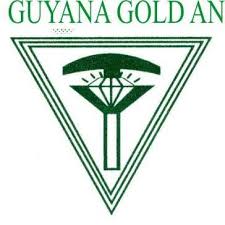Miners yesterday issued what they called A Manifesto for Mining, arguing against the phasing out of mercury without a “viable, proven replacement” and for a continuation of controversial river prospecting.
These key points in the manifesto published in yesterday’s Sunday Stabroek would pit the miners against environmentalists and key aspects of the current government’s policy. President David Granger has committed Guyana to eliminating the use of mercury by 2027.
In a paid advertisement, the miners sought to flex their political muscle. They said that as the nation prepares for general elections in March, 2020, the Guyana Gold and Diamond Miners Association and the National Mining Syndicate are speaking with one voice.
“These are the requirements Miners want met by the political party that hopes to get our support. In 2020 the more than 100,000 Guyanese and their families who are directly and indirectly dependent on mining for their livelihoods will be voting on issues that are specific to the industry, we are setting out the following list of items we want to be included in the manifesto of parties serious about getting our support”, the ad stated.
Its first demand was that mercury not be phased out without a viable replacement, the provision of financial and technical aid to miners to phase out the use of mercury and provision of affordable alternative technology to miners.
Mercury has been seen as a major environmental pollutant as it builds up in food chains and could lead to severe diseases and death. Several studies over the years have shown relatively high levels of mercury in villagers close to major mining operations. There has also been reckless use of mercury by pork knockers
Replacement options for mercury are seen to be primarily the responsibility of miners while the government and regulatory authorities lend a helping hand.
The mining groups also want improved infrastructure.
They called for new roads for new mining areas, better maintenance of interior roads by the government and the giving of priority in relation to tenders for these works to miners with the requisite equipment.
Further, the miners stated that roads should be permanent all-weather roads capable of taking up to 60-tonne loads. Bridges should also be constructed to accept 60-tonne loads and pontoons at river crossings should be able to take 100-tonne loads.
The miners are also calling for a pre-set policy and formula where a “sizeable” amount of proceeds from royalties and taxes are set aside for infrastructural development for mining.
The miners’ groups are also seeking better incentives for mining: cheaper fuel by reducing duties and taxes, removal of VAT and duty on all mining equipment, lowering of duties on new vehicles and the cutting of VAT and taxes across the board.
In terms of financing for the sector, the miners want mining permits issued for 10 to 15 years in the first instance and the setting up of a mining development bank to aid small and medium scale miners.
Also being sought by the miners is technical support and improved access to data on mineral deposits and exploration.
The miners are arguing against an increase in rental fees for lands and want greater border control with increased security. The miners are also calling for the revamping of Guyana’s Mining Act and a repositioning of mining policy that takes account of the “realities and capabilities of operators in the interior. All policies and regulations must be crafted in full consultation with miners and miners organisations and must be done by competent experts with real-world mining experience”.
Miners are also calling for a continuation of river mining and a “clear policy position on river mining in Guyana based on proven scientific and technical studies”. River mining has been blamed for the destruction of numerous river banks throughout the country, the discharging of sediment into waterways used by villagers for drinking water and the `death’ of waterways such as the Konawaruk.
The miners groups are inviting all parties to contact them to provide their views on these matters.






